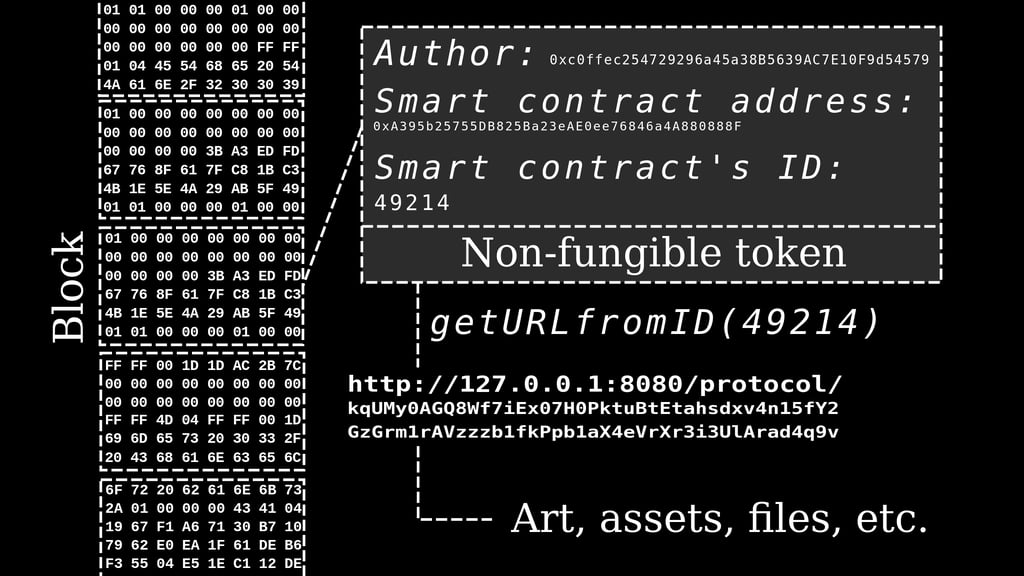NTF's are more than dumb "Cyberpunks"
Revolutionizing Public Administration with Blockchain and NFTs: A Deeper Dive into Digital Transformation


Revolutionizing Public Administration with Blockchain and NFTs: A Deeper Dive into Digital Transformation
In an era marked by rapid technological advancements, blockchain technology and Non-Fungible Tokens (NFTs) have emerged as significant disruptors well beyond the confines of digital art. Their integration into public administrative processes heralds a new dawn for government services, promising to redefine the efficiency, security, and transparency of various sectors. This blog post expands on the transformative potential of blockchain and NFTs across public services, focusing on their innovative applications in legal notices, tax payments, vehicle registrations, and compliance with local ordinances, while highlighting a unique feature: the expiration or "burning" of digital tokens to signify the completion or renewal of services such as taxes or registrations.
Enhancing Legal Notices and Process Serving
The application of blockchain technology revolutionizes the traditional, often cumbersome process of serving legal notices. By leveraging the immutable and transparent nature of blockchain, and issuing legal notices as NFTs, we establish a system where documents are permanently recorded, indisputably verifiable, and immune to tampering. This method not only streamlines the process and eliminates disputes over notice service but also introduces environmental and cost efficiencies by reducing reliance on paper.
Broadening the Utility of NFT Technology
NFTs find relevance in a variety of sectors, each benefiting from blockchain's inherent qualities:
· Intellectual Property and Licensing: NFTs provide a robust framework for managing and enforcing intellectual property rights, offering creators transparent and enforceable mechanisms to protect their work.
· Supply Chain Transparency: By authenticating the origin and journey of products, NFTs play a crucial role in combating counterfeiting and enhancing operational efficiency within supply chains.
· Credential Verification: In education and professional certification, NFTs offer a secure, tamper-proof method of issuing and verifying credentials, revolutionizing the way achievements and qualifications are validated.
· Real Estate and Asset Tokenization: NFTs enable fractional ownership, increased liquidity, and simplified transfers of high-value assets, making investment more accessible and manageable.
Streamlining Public Administrative Processes with Expirable NFTs
The application of blockchain and NFTs in public administrative processes such as tax payments, vehicle registrations, and local compliance requirements (like the Chicago Wheel Tax) introduces a paradigm shift towards greater efficiency and transparency. A notable feature of this digital transformation is the ability to program NFTs to expire or "burn," providing a dynamic mechanism to manage time-sensitive obligations.
Tax Payments and Vehicle Registrations
Blockchain technology simplifies tax payments and vehicle registrations by providing a secure, immutable record of transactions. NFTs can serve as digital proofs of payment or registration, each uniquely representing an individual's or entity's compliance with tax obligations or registration requirements. These NFTs can be programmed to expire, indicating the end of the validity period and necessitating renewal. This feature ensures timely compliance and reduces administrative burdens by automating notifications for renewals and expirations.
Innovative Compliance: Expirable NFTs for Local Taxes
For local taxes and compliance requirements, such as the Chicago Wheel Tax, blockchain technology offers a streamlined, fraud-resistant system. Upon payment, a vehicle owner receives an NFT as proof of payment. This digital token can be programmed to expire at the end of the tax period, automatically signaling the need for renewal. The expirable nature of these NFTs introduces a level of automation and efficiency previously unattainable, significantly simplifying compliance verification for both citizens and enforcement officials.
Streamlining Public Administrative Processes with Expirable NFTs
The application of blockchain and NFTs in public administrative processes such as tax payments, vehicle registrations, and local compliance requirements (like the Chicago Wheel Tax) introduces a paradigm shift towards greater efficiency and transparency. A notable feature of this digital transformation is the ability to program NFTs to expire or "burn," providing a dynamic mechanism to manage time-sensitive obligations.
Future Prospects: Multi-Blockchain Integration and Beyond
Looking ahead, the potential for multi-blockchain integration promises tailored solutions that optimize efficiency and cost-effectiveness based on the specific needs of each document or transaction. This approach allows for the customization of public services on a scale never before possible, paving the way for a future where government services are more accessible, efficient, and transparent.
Conclusion
The integration of blockchain and NFTs into public services is not just a theoretical possibility but a practical solution to many of the inefficiencies plaguing current systems. From revolutionizing the way legal notices are served to introducing expirable NFTs for managing tax payments and vehicle registrations, the applications of these technologies are vast and varied. As we embrace this digital transformation, the potential to redefine public administration for the digital age is immense, promising a future where government services are more efficient, secure, and aligned with the needs of a modern society. The journey toward implementing these innovations will require overcoming significant challenges, but the prospects for enhancing public service delivery make it a worthwhile endeavor.
HS,
Kenneth William Mayle